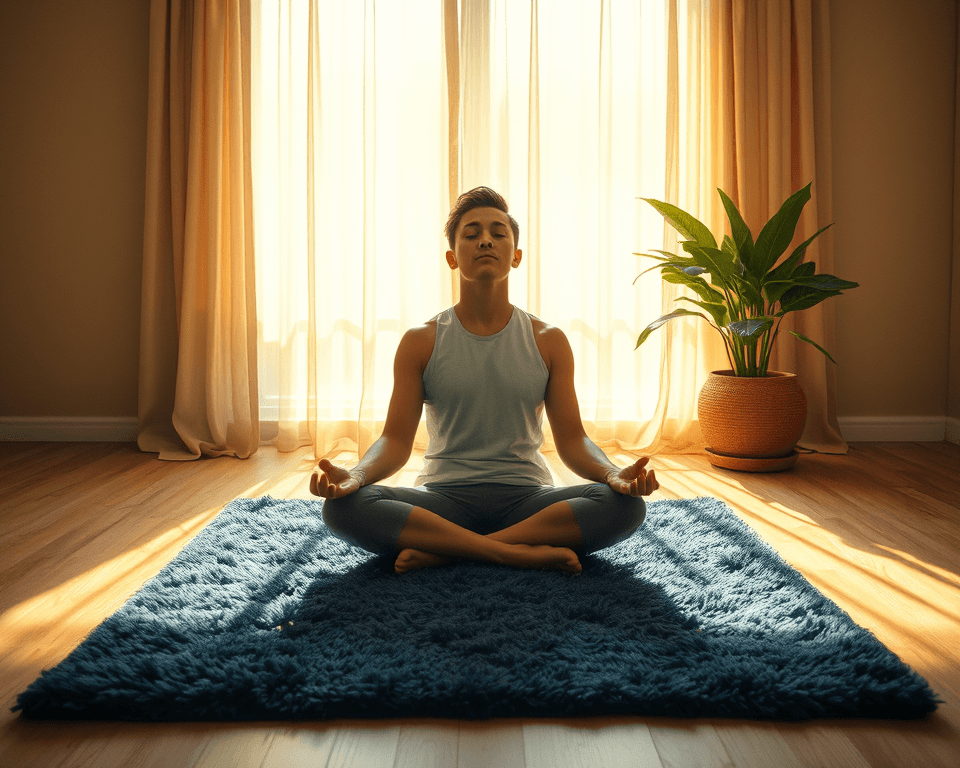Self-awareness—it’s that magical quality that allows us to know ourselves inside and out. It’s like having a personal GPS directing us to where we need to go in life. But let’s be real: it’s not always easy to tune into our inner selves. Sometimes, we feel lost, overwhelmed, or just plain stuck in a rut! But fear not! I’ve got ten rock-solid exercises that’ll help ramp up your self-awareness. We’re talking practical stuff you can dive into right now.
Key Takeaways
- Journaling helps you process emotions and understand your thoughts by putting them on paper.
- Mindfulness meditation fosters present moment awareness, reducing anxiety and increasing focus.
- Feedback from others provides insights that can help reshape how you view yourself.
- Self-compassion encourages kindness toward yourself, which lays the groundwork for personal growth.
- Self-assessments can reveal your strengths and weaknesses, helping you make informed life choices.
Journaling for Self-Reflection
Let’s kick things off with journaling. Now, I get it—journaling might sound a bit cliché, right? But hear me out! Writing in a journal can be a freaking game changer for self-reflection.
Imagine pouring your thoughts and feelings onto the pages of a journal. Sounds cathartic, right? Journaling isn’t just about scribbling down what you did on Thursday; it’s a powerful tool for self-discovery. But if you’re like me, you might have found it hard to stick to a routine or know what exactly to write about. That’s where structured prompts come into play!
What I recommend is a reflective writing style. You could start each day with a few prompts like:
– What’s one thing I feel grateful for today?
– What’s been weighing on my mind lately?
– How can I improve my mood right now?
This approach takes the guesswork out of journaling and has the bonus of making it more productive. Plus, there are killer personal growth journals like the Five Minute Journal priced around $22, which guides you with daily prompts. Trust me, it’s worth every penny!
Journaling not only enhances your cognitive awareness but also aids emotional processing. It gives you clarity and helps set actionable goals. So, grab a notebook—yes, I’m talking about that cute leather-bound one you’ve had your eye on—and start writing!
“Journaling is like having a conversation with your most honest friend.”
Mindfulness Meditation Practicing
Now, if you haven’t tried mindfulness meditation yet, it’s time to hop on that train! Picture yourself sitting quietly, focusing on your breath as it flows in and out. Sounds easy, right? But trust me, it’s less about ease and more about practice.
Mindfulness meditation encourages you to embrace the present moment. I know, I know—sitting still can be difficult, but here’s the kicker: it’s proven to help with stress reduction and emotional regulation. If you’re feeling overwhelmed, a simple 10-minute session with an app like Headspace (starting at $12.99/month) can work wonders.
You don’t need to be a guru to meditate! Just find a comfortable spot to sit, close your eyes, and start focusing on your breath. If thoughts pop up, acknowledge them and let them float away. Over time, this practice sharpens your focus and mental clarity—the perfect recipe for boosting self-awareness.
“Just breathe. The rest will follow.”
Seeking Feedback from Others
Next up, let’s talk about feedback. This one can feel a little intimidating. I mean, who likes hearing criticism? But it’s crucial for actually getting to know ourselves better. Seriously! Constructive criticism is like a mirror reflecting parts of ourselves we might not see.
When seeking feedback, it’s key to choose the right people. This isn’t about asking every Tom, Dick, and Harry what they think of you. Think of someone who has your back—maybe a mentor or a trusted friend. Approach them and ask specific questions. For instance, “What do you think I could improve in my communication skills?”
You might be surprised by the insights you gain. Feedback helps shape your self-perception, which is vital for emotional intelligence. And if you’re worried about feeling hurt by the responses, remember that growth often comes from discomfort.
Use feedback tools as well! Websites like 360 Degree Feedback can give you comprehensive insights from various colleagues or friends, usually for a fee. Just remember, not all feedback is valid—focus on what resonates with you.
Practicing Self-Compassion
Alright, let’s slow things down a bit and talk about self-compassion. This one’s a biggie for many folks. We often treat ourselves harsher than we would our friends. Ever found yourself saying mean things in your head? Yeah, it’s time to stop that!
Practicing self-kindness is all about accepting that it’s okay to be imperfect. Start with simple positive affirmations. You can say things like, “I’m doing my best,” or “It’s okay to make mistakes.” If you’re struggling, the Self-Compassion Workbook for Teens (around $18) could offer more structured exercises.
Another effective tactic? Breathing exercises! They ground you in your body and help you cultivate a sense of kindness toward yourself. The more you unite self-kindness with emotional healing, the higher your mental resilience will soar.
“Be the kind friend you wish you had.”
Engaging in Self-Assessment Tools
Self-assessment tools—ever tried them? I know they might seem gimmicky, but they can really help in understanding your behavioral patterns. From personality quizzes to emotional intelligence assessments, these tools lay down a road to self-discovery.
Let’s start with the popular Myers-Briggs Type Indicator (MBTI). It gives you insight into your personality type and how you relate to others. There are tons of free personality tests available online, but sites like 16Personalities offer a more structured approach for free or a detailed report for about $19.
Now, skepticism about accuracy is common, but these tests provide valuable insights that could highlight your strengths and weaknesses.
Table: Popular Self-Assessment Tools
| Tool | Description | Price |
|---|---|---|
| Myers-Briggs Type Indicator | Personality assessment | $49.95 |
| 16Personalities | Free personality test with premium insights | Free/$19 |
| Emotional Intelligence Test | Assess EI abilities | Varies |
Using these assessments can help you understand how you respond to situations—something you may want to adjust as you aim for personal development.
Practicing Active Listening
Let’s shift gears and focus on communication, specifically active listening. When was the last time you really listened to someone? I mean, really listened, not just waiting for your turn to speak? This skill can open up a whole new world in your relationships.
Try engaging in one-on-one conversations where you focus solely on the other person. Put away your phone, make eye contact, and show genuine interest in what they’re saying. This not only cultivates deeper emotional connections but also enhances your interpersonal relationships.
You might struggle initially, but it’s all about practice. Use listening exercises—such as paraphrasing what the other person just said—to confirm your understanding. This technique builds trust and rapport.
“The best way to connect is by truly hearing what’s being said.”
Setting Personal Goals
Let’s settle on goal-setting next. Now, setting goals can feel overwhelming, especially if you’re not sure how to make them realistic. Trust me, using the SMART criteria can be a game-changer.
SMART stands for Specific, Measurable, Achievable, Relevant, and Time-bound. Want to lose weight? Instead of saying, “I want to be healthier,” aim for “I will lose 10 pounds in 3 months by working out three times a week and eating veggies for lunch every day.” There! Clear, actionable goals right there!
You can use goal-setting apps, like Strides, which is free with in-app purchases, to keep you on track. It’s a great motivational tool, reminding you of your objectives.
Remember that keeping your goals visible ferments commitment! Write them down, put them on your bathroom mirror, or even use a whiteboard. Make sure you hold yourself accountable!
Exploring Emotions Through Art
Art therapy—this one’s close to my heart. You don’t need to be Picasso to express your feelings through creative outlets. It’s all about emotional awareness and revealing those bottled-up feelings.
You could doodle, paint, or even create a collage. Utilize materials you already have, like magazines or online resources. Websites like Pinterest often have fantastic art prompts if you’re unsure where to start.
Creative expression can be a therapeutic means to develop awareness, making it easier to identify how you feel in various situations. Trust me; art doesn’t require talent! Simply channel those feelings onto the canvas or paper without worrying about the outcome.
“Art is the most beautiful way to scream your emotions without saying a word.”
Joining Support Groups or Workshops
Ever thought about joining a support group? Sounds intimidating, huh? But connecting with others who share similar experiences can provide a powerful layer of support and insight.
Whether it’s a face-to-face group or an online community, sharing and hearing stories brings fresh perspectives. Workshops often offer structured environments where personal development can flourish. Organizations like Meetup provide listings for various personal development workshops in your area, many of which are free or low-cost.
Additionally, don’t shy away from starting your group if there’s nothing available. Pick a central topic—like mindfulness or emotional intelligence—and see who’s interested. Create a safe space for sharing and growing. Everything else falls into place from there.
Implementing Daily Self-Check-ins
Finally, let’s wrap it up with daily self-check-ins. These are simple yet incredibly effective. You know how you check your phone for social media updates? Let’s flip that script.
Each day, take a few minutes to ask yourself some key questions:
– How am I feeling today?
– What went well?
– What could I have done differently?
Set a specific time—maybe first thing in the morning or just before bed—when you can reflect. I recommend using apps like Daylio to track your mood and activities.
Don’t overlook the power of these little check-ins! It’s a way to monitor progress, recognize patterns in your emotions, and boost your self-awareness over time.
“Your only job is to check in with yourself—listen, reflect, and grow.”
By stacking these exercises, you can roll out a powerful path to elevated self-awareness. Every small step in one of these exercises can lead to greater clarity, deeper relationships, and the confidence needed to curate the life you really want. Now, which one are you going to tackle first?
Frequently Asked Questions
How can I maintain a consistent journaling practice for self-awareness?
To maintain a consistent journaling practice, set aside a specific time each day. Use structured prompts to guide your writing and keep your entries focused. Start small, aiming for just a few minutes a day, and gradually increase the time as you become more comfortable.
What types of mindfulness meditation are beginner-friendly?
Beginners often benefit from guided meditations, body scan techniques, or focused breathing exercises. These practices help develop present-moment awareness and can reduce stress. Many meditation apps offer short sessions tailored for newcomers.
How do I create a self-assessment based on feedback?
To create a self-assessment, start by gathering constructive feedback from trusted individuals. Analyze their insights to identify patterns or recurring themes. Use these observations to set specific personal development goals and track your progress over time.
What are some effective techniques for practicing self-compassion?
Effective self-compassion techniques include practicing positive affirmations, keeping a gratitude journal, and engaging in loving-kindness meditation. These methods help foster self-kindness and can improve emotional resilience during challenging times.
How do I identify the right tools for self-assessment?
Choose self-assessment tools based on your personal goals and interests. Research widely used options like personality tests or emotional intelligence assessments, checking reviews for credibility. Experiment with a few tools to discover which ones provide the most meaningful insights for your self-awareness journey.
What are the benefits of active listening in personal relationships?
Active listening enhances communication and builds trust. It allows individuals to feel heard and valued, fostering deeper emotional connections. Over time, it can improve interpersonal dynamics and lead to more constructive conversations.
How do I set achievable personal goals using the SMART criteria?
Use the SMART criteria by ensuring your goals are Specific, Measurable, Achievable, Relevant, and Time-bound. This framework helps clarify your objectives and keeps you accountable, increasing the likelihood of achieving your desired outcomes.
How can art be used as a tool for emotional expression?
Art serves as a powerful medium for emotional expression by allowing individuals to communicate feelings non-verbally. Engaging in various artistic activities, such as painting or drawing, can facilitate self-discovery and provide an outlet for processing complex emotions.
What should I expect from joining a support group?
Joining a support group typically leads to shared experiences, emotional validation, and insights from others facing similar challenges. You can expect a safe space for expressing feelings, learning coping strategies, and building a supportive community.
How do daily self-check-ins improve self-awareness?
Daily self-check-ins encourage mindfulness and reflection, helping you monitor your emotional state and personal goals. By regularly assessing your feelings and experiences, you can identify patterns, understand your responses better, and make more informed decisions.










